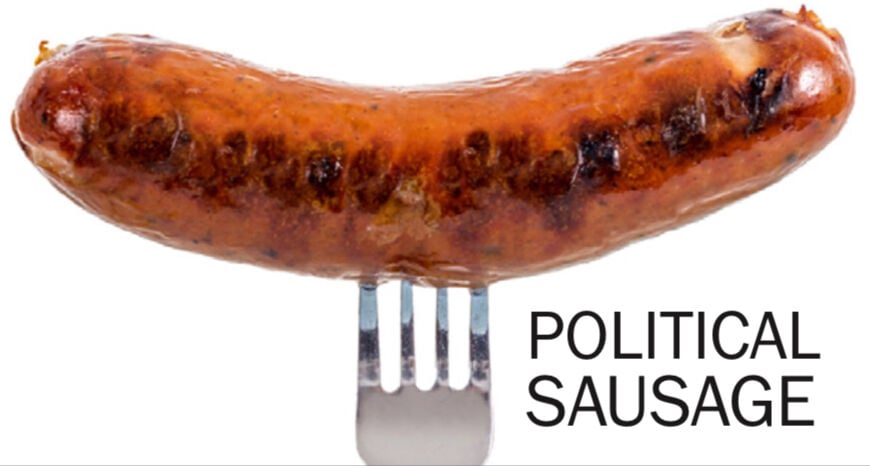Chef Stephen Gustard moved to Greenbrier County 25 years ago to attend The Greenbrier's Culinary Apprenticeship Program. He went on to build a lengthy resume in fine dining restaurants, including The Greenbrier Sporting Club, the French Goat, and most recently Executive Chef at Tamarack Mark…
Chef Stephen Gustard moved to Greenbrier County 25 years ago to attend The Greenbrier's Culinary Apprenticeship Program. He went on to build a…
Trial dates for two former Raleigh County Schools employees charged with child abuse and battery have been scheduled for September.
Elected leaders from West Virginia and other coal-producing states as well as the nation’s capitol on Thursday denounced new Environmental Pro…
The College of Business, Humanities, and Social Sciences hosted its annual Student Arts Showcase, Wednesday, April 24.
State health officials say they’re continuing to monitor for disease transmission after West…
WHEELING, W.Va. - The Wheeling-based Mt. Zion Cemetery Corporation received a $2 million che…
Child care providers, families, and advocates are scheduled to gather at Lively Theater Amph…
CHARLESTON, W.Va. - On March 25, the West Virginia Small Business Development Center (SBDC) …
CHARLESTON, W.Va. - Officials are saying goodbye to a piece of the City of Charleston’s past…
April showers are giving way to May flowers, signaling that spring has arrived. According to…
For some ninth graders near Fresno, California, the invitation — years before they’ll don a …
A Boone County mother charged with child neglect linked to the death of her daughter had pul…
MORGANTOWN, W.Va. - Bonnie’s Bus mobile mammography unit will visit Mercer, Wyoming, Cabell,…
WASHINGTON — Military and humanitarian aid could be on its way to Ukraine, Israel and Taiwan…
Donald Trump on Thursday claimed a 2017 white nationalist rally in Charlottesville, Virginia…
Student protests over the war in Gaza have created a new and unpredictable challenge for Pre…
Former West Virginia coal executive Don Blankenship is making another attempt to win a U.S. …
Former U.S. Rep. George Santos says he's dropping his longshot bid to return to Congress, mo…
President Joe Biden has marked Earth Day by announcing $7 billion in federal grants to provi…
 |
 |
Special Publications
A guide to area businesses who cater to those 50 & over.
A resource to help readers find medical professionals in the area.
A look at local high school hoops teams - both boys and girls!
Online Poll
Trending Videos
Sports
This Date in Baseball, April 27 - Barry Bonds became the fourth major leaguer with 300 homers and 300 steals
MORGANTOWN — It's been 22 years in the making, but the moment of truth has finally arrived for Zach Frazier, West Virginia's All-American cent…
Reigning Indianapolis 500 champion Josef Newgarden is accepted blame for manipulating the pu…
Bevy of defensive playmakers are available in Round 2 of the NFL draft after historic offensive run
Bayern Munich honorary president Uli Hoeness says he expects a decision within a week on a n…
The historic run on offensive players, especially quarterbacks, in the first round of the NF…
Slavia Prague has been fined by UEFA $93,000 for crowd trouble during a Europa League game a…
Premium Text Ads
Most Popular
United Methodist delegates have overwhelmingly endorsed a constitutional amendment seen by advocates as a way of defusing debates over the rol…
April showers are giving way to May flowers, signaling that spring has arrived. According to tradition and years of living with my mom, spring…
“Forty-five years ago, in 1979, a tradition began in Mullens. This tradition is now known as…
It looks like the third time will be the charm as the 2024 New Orleans Jazz & Heritage f…
charleston, w.va. – The West Virginia Department of Arts, Culture and History (WVDACH) is ac…
beckley – Three new members have been elected to the Beckley Area Foundation Board of Direct…
Other Interesting Reads
Malaria is still a significant public health challenge in Kenya, but an important pilot of the world’s first malaria vaccine may help. The disease is preventable and curable, but poverty makes it deadly for those who can’t afford treatment. Most of those affected are children under 5 and pregnant women. Some progress has been made with local manufacturing of crucial antimalarial medication, an important step in Africa’s capacity to make lifesaving drugs.
When cases of locally transmitted malaria were found in the United States last year, it was a reminder that climate change is reviving or migrating the threat of some diseases. But across the African continent malaria has never left, killing or sickening millions of people. Cases of resistance to antimalarial drugs and insecticides are increasing. Funding by governments and donors for innovation is slowing. And living conditions play a role, with crowded neighborhoods, stagnant water, poor sanitation and lack of access to treatment and prevention materials. For World Malaria Day on Thursday, here is what you need to know.
Russia has vetoed a U.N. resolution sponsored by the United States and Japan calling on all nations to prevent a dangerous nuclear arms race in outer space, calling it “a dirty spectacle” that cherry picks weapons of mass destruction from all other weapons that should also be banned. The vote in the 15-member Security Council was 13 in favor, Russia opposed and China abstaining. The resolution would have called on all countries not to develop or deploy nuclear arms or other weapons of mass destruction in space, as banned under a 1967 international treaty that included the U.S. and Russia, and to agree to the need to verify compliance. The U.S. and Russian ambassador traded accusations on space weapons.
For millions of American workers, the government took two actions this week that could bestow potentially far-reaching benefits. In one move, the Federal Trade Commission voted to ban noncompete agreements, which bar millions of workers from leaving their employers to join a competitor or start a rival business for a specific period of time. The FTC’s move would mean that such employees could apply for jobs they weren’t previously eligible to seek. In a second move, the Biden administration finalized a rule that will make millions more salaried workers eligible for overtime pay. The rule significantly raises the salary level that workers could earn and still qualify for overtime. What exactly would these rules mean for America’s workers?
U.S. officials say Ukraine for the first time has begun using long-range ballistic missiles, striking a Russian military airfield in Crimea and Russian troops in another occupied area overnight. The strikes come about a month after the U.S. secretly provided the weapons so Ukraine could strike targets up to 190 miles away. One U.S. official says the delivery of the Army Tactical Missile System, known as ATACMS, was approved by President Joe Biden in February, and then in March the U.S. included a “significant” number of them in a $300 million aid package announced. The official says the U.S. is providing more in the latest aid package.
A new package of $61 billion in U.S. aid may prevent Ukraine from losing its war against Russia. But winning it will be a long slog. The aid approval means Ukraine may be able to release artillery ammunition that it has been rationing. The difference could be felt within days on the front line. That may help slow Russian troops, who are taking territory against massively outgunned Ukrainian forces. And the new aid will buy Ukraine time for long-term planning about how to turn the tide. Many military experts believe that neither Ukraine nor Russia is capable of mounting a major offensive until next year. But Russia is pushing forward along the front line, and Ukraine says it desperately needs artillery ammunition and air defenses to counter the assaults.
U.S. Secretary of State Antony Blinken has begun a critical trip to China armed with a strengthened diplomatic hand following Senate approval of a foreign aid package that will provide billions of dollars in assistance to Ukraine, Israel and Taiwan as well as force TikTok’s China-based parent company to sell the social media platform -– all areas of contention between Washington and Beijing. Blinken arrived in Shanghai on Wednesday just hours after the Senate vote on the long-stalled legislation and shortly before President Joe Biden is expected to sign it into law to demonstrate U.S. resolve in defending its allies and partners. Passage of the bill will add further complications to an already complex relationship strained by disagreements over numerous global and regional disputes.
































































































Commented
Sorry, there are no recent results for popular commented articles.